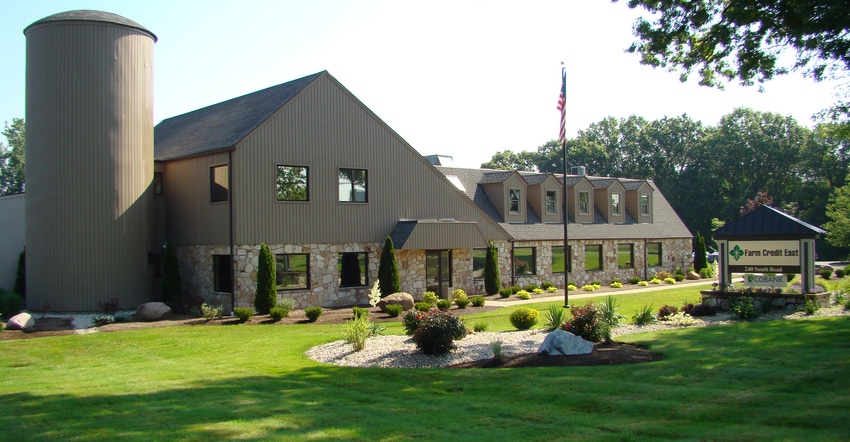
A year after Yankee Farm Credit celebrated its 25th anniversary, the firm recently announced that it was merging with its much larger sister firm Farm Credit East, covering a vast area that includes New Jersey, New York and all of New England.
The boards of directors of both associations recently signed a letter of intent to merge the two organizations by Jan. 1 under the Farm Credit East name. Mike Reynolds, CEO of Farm Credit East, will be the CEO of the combined entity.
“This is a strategic merger for both Farm Credit East and Yankee Farm Credit,” writes Celeste Kane-Stebbins, chairwoman of Yankee Farm Credit’s board of directors, in a news release. “Our board has worked diligently to determine how best to support the long-term success of Yankee members and their Farm Credit association.
"Both Farm Credit East and Yankee are financially strong, and the two associations have successfully partnered in the area of customer services for several years. Together, we can enhance these services and provide even greater value for our members.”
“This is a good merger for members of both cooperatives,” writes Laurie Griffen, chairwoman of Farm Credit East’s board of directors. “Both associations are closely aligned in their missions and their focus on customer owners’ success, and both are optimistic for the future of Northeast agriculture, forest products and fishing. Together, the combined association will benefit from increased loan diversity, a stronger capital base and enhanced earnings.”
Kane-Stebbins says the Yankee board decided it was best to pursue a merger after CEO Brenda Frank announced last year that she was leaving the firm to join CoBank, the wholesale bank that provides loan funds to Yankee Farm Credit.
And while Yankee Farm Credit — with its $586 million in loans and $12.7 million in net income in 2020 — is doing well financially, Kane-Stebbins says there are concerns over farm consolidations, mainly dairy farms, and the institution’s ability to fund what are becoming larger loans.
“It's something to consider because, of course, as dairies consolidate, which is definitely the trend as we're seeing … the loans get bigger also, and in Yankee’s position, we have a hold limitation of $6 million," she says. "So when a loan … an entity combines, maybe another farm or two other farms, and now their loans are $20 million or bigger, we can only hold $6 million of that, so we must participate out the balance, and so our ability to make earned interest on those loans becomes less."
The majority of the institution’s loans are dairy farms, 44%, followed by timber operations, 13%, and maple operations, 11%. The association has 1,000 members in Vermont and parts of New Hampshire and New York.
By contrast, Farm Credit East, which covers most of the Northeast from New Jersey to Maine, reported $8.2 billion in loans in 2020 and a net income of $194 million. Farm Credit East has more than 12,000 members and a much more diversified portfolio.
“It makes sense that if we’re going to merge with someone, we’re not only geographically … in the same area, but also we have a lot of other things in common,” Kane-Stebbins says.
Kane-Stebbins says that most customers won’t notice a difference, and that they’ll be working with the same loan officer as before. But the merger will likely result in the closure of at least one branch, the Yankee branch in Chazy, N.Y., which Kane-Stebbins says has been closed from time to time in the past.
The combined Farm Credit East will provide Yankee customers more services, she says, including access to the Country Home Loan program, of which Farm Credit East has a much larger presence, and other programs currently not available to Yankee members.
Yankee Farm Credit just doled out $7.5 million in 2020 patronage to its members. For 2021, Kane-Stebbins says the patronage will be paid out by Farm Credit East with all members receiving the same rate of patronage, but she added that the Yankee board is considering doling out a final bonus patronage sometime this year because of extra capital from overfunding of programs. A final decision hasn’t been made on the bonus patronage.
About the Author(s)
You May Also Like






